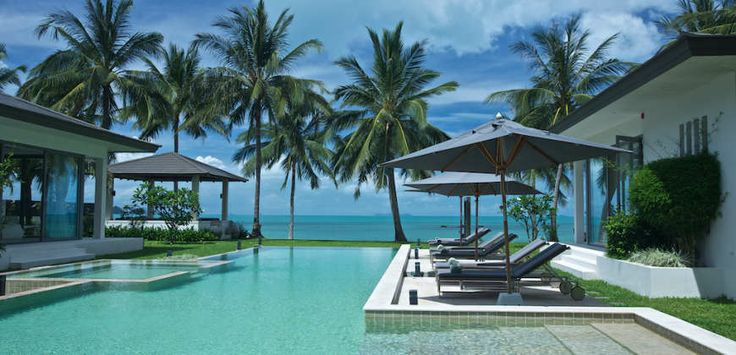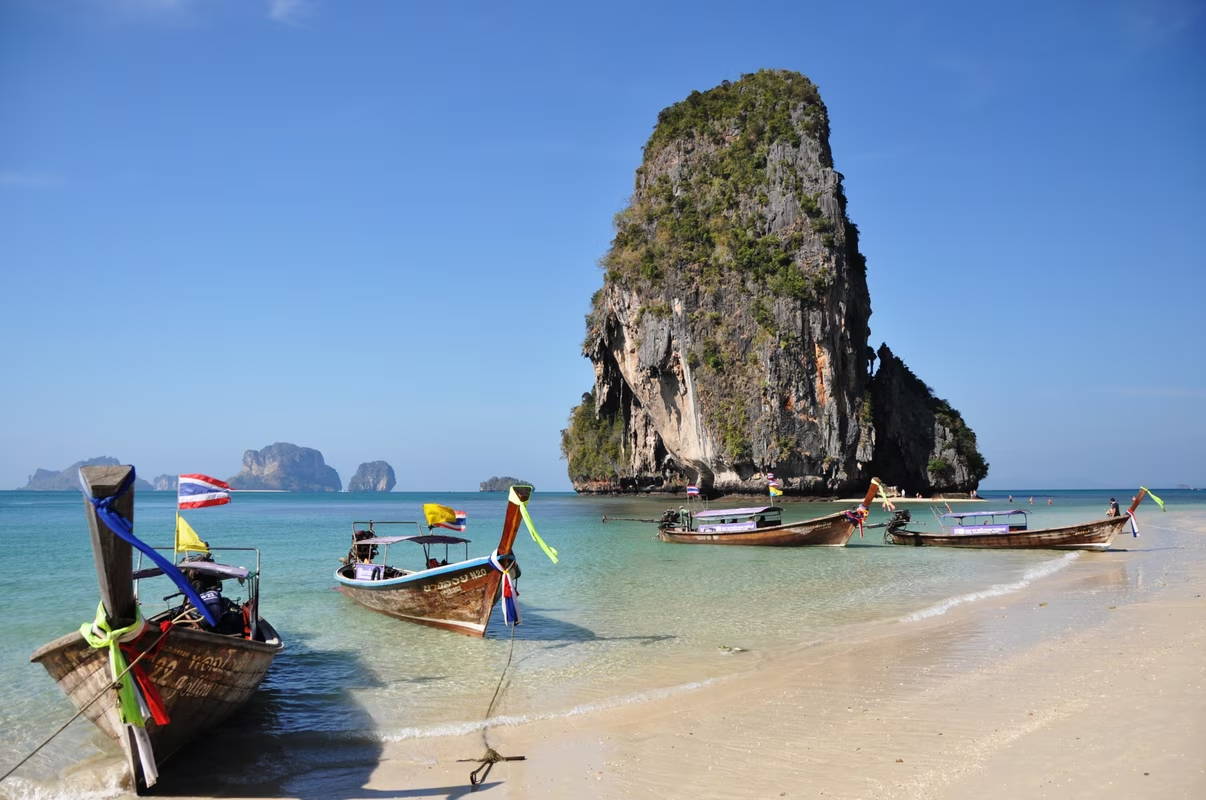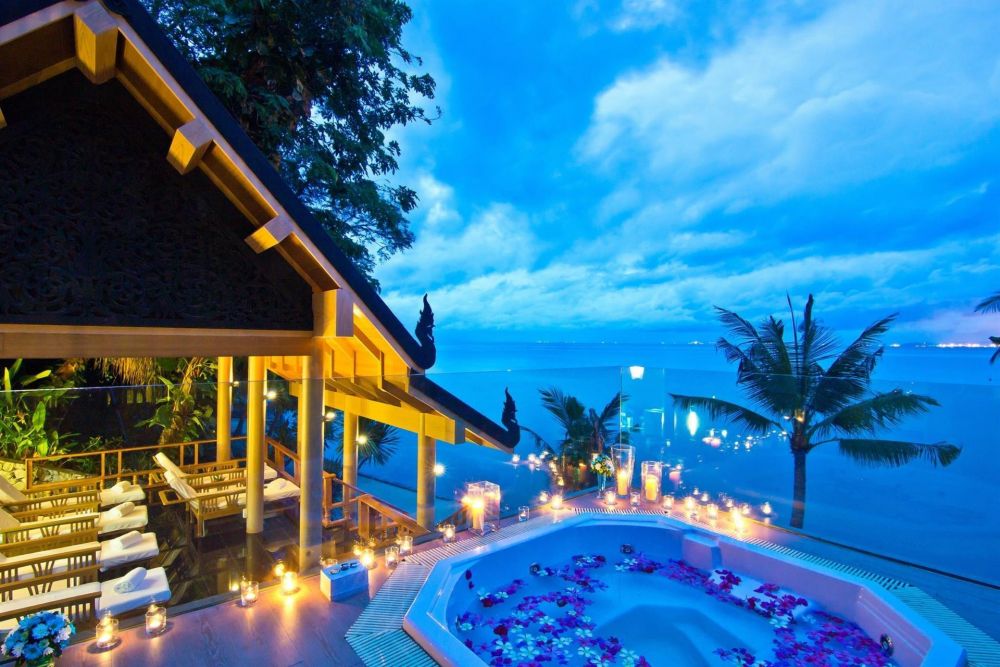
Thailand property investment
In Thailand, property has established itself as an excellent area for investment, especially among foreigners. Due to the huge tourist flow, as well as people moving to Thailand for permanent residence, property is a win-win option of where to invest money to not only save it, but also multiply it.
In this article we will tell you how the property investment market in Thailand works, what you need to know before buying a home in this country and the most interesting thing – how much you can earn on it.
Thailand’s economy: whether it is profitable to buy property
Investments in property in Thailand, including the main resorts – Phuket, Pattaya, Samui, Hua Hin and others, will not bring a record income. But all those who are interested in investing funds know that the greater the profit – the more serious risks. When buying housing in Thailand, they are minimal and here is why:
- The national currency is stable. Thai baht is annually included in the top 10 stable currencies in the world. Serious fluctuations of the Thai currency was subjected only during the pandemic and already in 2023 returned its position. And the level of inflation in Thailand can envy even developed countries: in the last 10 years, it averaged 0.8-1%, the exception was postkovidny 2022, then the inflation rate reached a record for Thailand 6.1%.
- Year-round tourist season. Yes, Thailand has a high and low season, but the country has enough tourists at any time of the year. Before the pandemic, the flow of tourists reached 39 million per year, now the number of arrivals has almost reached this level.
- Structure of the economy. The economy of Thailand is not only tourism, but also agriculture, industry, energy, foreign trade. Thailand has a high rate of economic growth, as well as low government debt, the Thai government is actively developing infrastructure. All this together opens up new opportunities for business and investment.
Investing in property in Thailand is a profitable and low-risk strategy, especially in promising areas with high tourist and business traffic. The demand for rental flats and villas is increasing with the growing number of tourists and employees of international companies, property is not losing value and the market is only getting stronger, as well as the country’s economy as a whole.
Property taxes in Thailand
Thailand’s property tax laws are much more lenient than other countries where investors are considering the purchase of residential and non-residential space for profit. We will cover the taxes in detail in other articles, but here we will give a general overview.
What taxes need to be paid when buying a property
This tax is called Transfer Fee and is levied on the sale or transfer of ownership of a property. It is 2% of the assessed value of the property as determined by the local authorities. This amount is often split between the buyer and the seller.
The amount of the state fee depends on the form of ownership, for a long-term lease (90 years) it is 1.1%, for a purchase – 6.3% of the value of the flat.
Property tax for foreigners
It is often reported that there are no annual property taxes in Thailand, but this is not entirely true. According to the current laws, the tax is not imposed on housing, the value of which is less than 10 million baht.
For residential properties more expensive, progressive rates apply. For example, if the price is between 10 and 40 million, the tax is 0.02%, and if the value exceeds 90 million, you have to pay 0.1%. When calculating the value of the property, 10 million is deducted from the value of the property, which is not taxable.
If you are registered in the flat or house as a permanently residing foreigner, only 10% of the tax is paid.
For commercial property the rate ranges from 0.3% to 1.0% and also depends on the value.
Tax on profits from renting out property
The standard tax rate on profits that foreigners receive from renting out property in Thailand is 15%. But if the foreigner is a tax resident of the country, the rate is reduced to 5%. There are also various tax deductions that can be used to reduce the amount of tax.
Tax charges on the sale of immovable property
This type of tax is of interest to investors whose aim is to invest in property for a short period of time. For example, how much tax you have to pay if you buy an apartment during the construction phase and sell it for more after the house is completed.
Specific Business Tax is paid if you have owned the property for less than 5 years, it is 3.3% of the sale amount.
The longer you own the property – the lower percentage of its value is taxed. Income Tax on the sale of property in Thailand is based on the profit made, and its rate can range from 0% (if the seller did not make a profit or if he has enough deductions) to 35%, depending on the total amount of income tax and the length of ownership.
Types of property investments
Investors invest in properties that are suitable for renting out or reselling after appreciation.
Buying an apartment or villa for renting out
One of the most popular types of property investment in Thailand’s resorts. In this case, condos in apartment complexes, apartments in high-rise buildings or villas are purchased. The property is then rented out on a long-term or short-term basis.
Acquisition of property for resale
It is common to invest in apartments or houses during the construction phase, when the price is lower than the market price, as the value of the property increases after the completion of the project.
An alternative type of investment is buying old or renovated flats or houses, carrying out the necessary works and then selling them at a higher price. This strategy requires market knowledge, budgeting and estimation of renovation costs.
How much income does property in Thailand bring in
Due to low tax rates and low property maintenance costs, housing in Thailand is much more cost-effective than, for example, in European countries. The average rate of return on real estate is 7% per annum, excluding capitalisation.
The amount of profit depends on the chosen investment strategy:
- Buying for a short term. For example, buying at the construction stage and selling immediately after delivery of the house, or even before the end of construction. This way you can get maximum profit (100% or more), but it is also the most risky scenario. It is important to cooperate with a reliable real estate agency – often the most promising properties are sold before the official start of sales.
- Acquisition for rent. A reliable investment option with low risks and guaranteed profit. On average, owners receive 7% per year from the price of housing, and in 10-15 years the property can be sold at a higher price. In this case, it is important to choose the right location of the house or villa.
- Purchase for rent and subsequent sale. Minimum taxes on profits from the sale of real estate in Thailand apply if you own a home for at least 5 years. So, if you buy an object at an early stage as cheap as possible, wait until the end of construction and rent for at least 5 years, you can get income from both renting and selling. In this scheme, the income depends on many factors, so it can be as 8-9% per annum, and 30-40%. Risks are moderate, it is very important to choose the location, developer and agencies.
In order to maximise profits with minimal risks, it is important not to be led by emotions and do not trust the marketing tricks of developers promising huge profits. With a proper strategy, investing in Thai property will allow you to preserve and multiply your capital.
Cost of housing in Thailand
In popular Thai resorts like Phuket or Pattaya, property prices are rising every year. The minimum cost of housing for investment is $100,000. With this amount you can already consider the property market in Thailand as a field for investment and profit.








